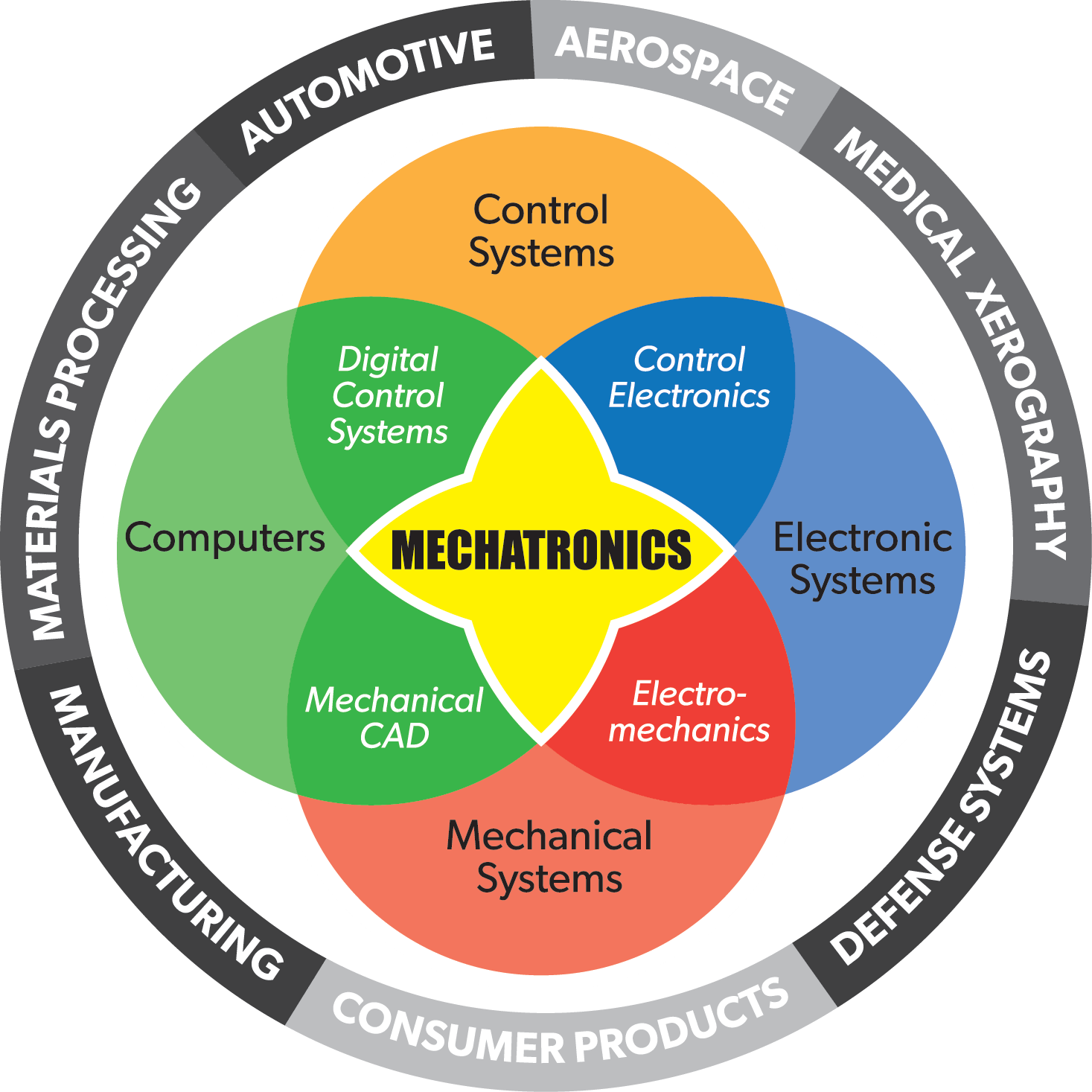Project Based Learning (PBL)
High School Students at VES spend a portion of their day participating in project-based learning classes. This is a time to dig further into a subject area across disciplines, to gain a deeper understanding of how it affects each student in their daily lives. This is a hands-on, relevant learning time that can spur some changes in daily living for both instructor and student.

Mechatronics
Mechatronics is the combination of mechanics, electronics, control systems theory and the computers into a single discipline. The skills and knowledge a person learns in Mechatronics provides the foundation for going to work in technical fields such as production and manufacturing. The Mechatronics program is offered onsite at Northwest Technical College. Juniors and Seniors meeting the eligibility requirements and interested in furthering their mechanical and technical skills are encouraged to apply.


Online College in the High School (OCHS)
OCHS is a program that offers college transfer, career and technical courses to high school students through a distance-learning format. Students do not have to travel to campus, as the colleges serve them online in their high school setting. Courses are offered through Alexandria Technical and Community College, Northland Community and Technical College and Northwest Technical College. To be eligible, students must meet the following criteria:
- Seniors - Students who will participate as 12th graders must meet minimum ACCUPLACER*, ACT* or MCA* scores and have at least a 2.8 cumulative GPA.
- Juniors - Students who will participate as 11th graders must meet minimum ACCUPLACER*, ACT* or MCA* scores and have at least a 3.2 cumulative GPA.
*An ACCUPLACER Reading Comprehension score of 250; an ACT Reading subscore of 21; a 10th grade MCA Reading score of 1047
Post-secondary Enrollment Option (PSEO)
Postsecondary Enrollment Options (PSEO) is a program that allows 10th-, 11th- and 12th-grade students to earn both high school and college credit while still in high school, through enrollment in and successful completion of college nonsectarian courses at eligible participating postsecondary institutions. Most PSEO courses are offered on the campus of the postsecondary institution; some courses are offered online. Each participating college or university sets its own admissions requirements for enrollment into the PSEO courses. Eleventh and 12th-grade students may take PSEO courses on a full- or part-time basis; 10th graders are eligible to enroll in PSEO on a more limited basis (see note below). Students must meet the PSEO residency and eligibility requirements and abide by participation limits specified in Minnesota Statutes, section 124D.09. If a school district determines a pupil is not on track to graduate, she/he may continue to participate in PSEO on a term by term basis.
By March 1 of each year, or three weeks prior to the date a student registers for courses for the following school year, schools must provide PSEO information to all students in grades 8-11 and their families. To assist the district in planning, a student must inform the district by May 30 of each year of their intent to enroll in postsecondary courses during the following school year.
There is no charge to PSEO students for tuition, books or fees for items that are required to participate in a course; however, students may incur fees for equipment that becomes their property when the course or program is completed, textbooks that are not returned to the postsecondary institution according to their policies, or for tuition costs if they do not notify the district by May 30 and the district does not waive this date requirement.
Funds are available to help pay transportation expenses for qualifying students to participate in PSEO courses on college campuses. For more information on these funds, access the PSEO Mileage Reimbursement Program Instructions.
Enrolling in a PSEO course does not prohibit a student from participating in activities sponsored by the high school.
School districts must allow a PSEO student reasonable access to the high school building, computers and/or other technology resources during regular school hours to participate in PSEO courses, whether on-line or on campus.
Each year, districts must publish their grade-weighting policy on their website, including a list of courses for which students can earn weighted grades.
All courses taken through the PSEO program must meet graduation requirements. Districts must transcript credits earned in PSEO by a ratio prescribed in statute. Districts have the authority to decide which subject area and standards the PSEO course meets. If there is a dispute between the district and the student regarding the number of credits granted for a particular course, the student may appeal the board's decision to the commissioner. The commissioner's decision regarding the number of credits will be final.
Postsecondary institutions are required to allow PSEO students to enroll in online courses consistent with the institution’s policy regarding postsecondary student enrollment in online courses.
Tenth-grade students may initially enroll in one Career and Technical Education (CTE) PSEO course if they receive a reading proficiency score of “meets” or “exceeds” on the 8th grade MCA. If 10th graders taking a CTE PSEO course earn at least a grade C in that class, they may take additional CTE PSEO courses. If the student did not take the MCA in 8th-grade, another reading assessment accepted by the enrolling postsecondary institution can be substituted. For students with disabilities, there is an alternative option to demonstrate reading proficiency.
For current information about the PSEO program, visit the Minnesota Department of Education’s PSEO webpage.
At VES, students enrolled in PSEO attend Bemidji State University and/or Northwest Technical College.
